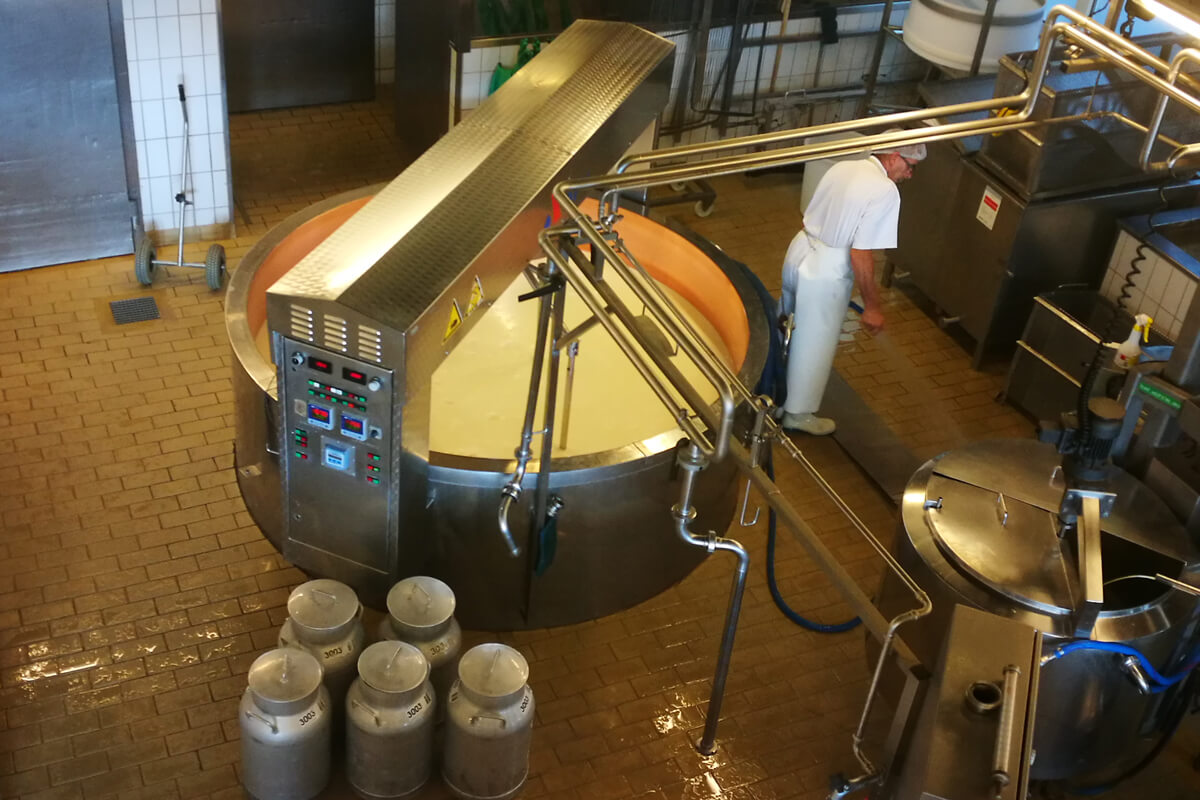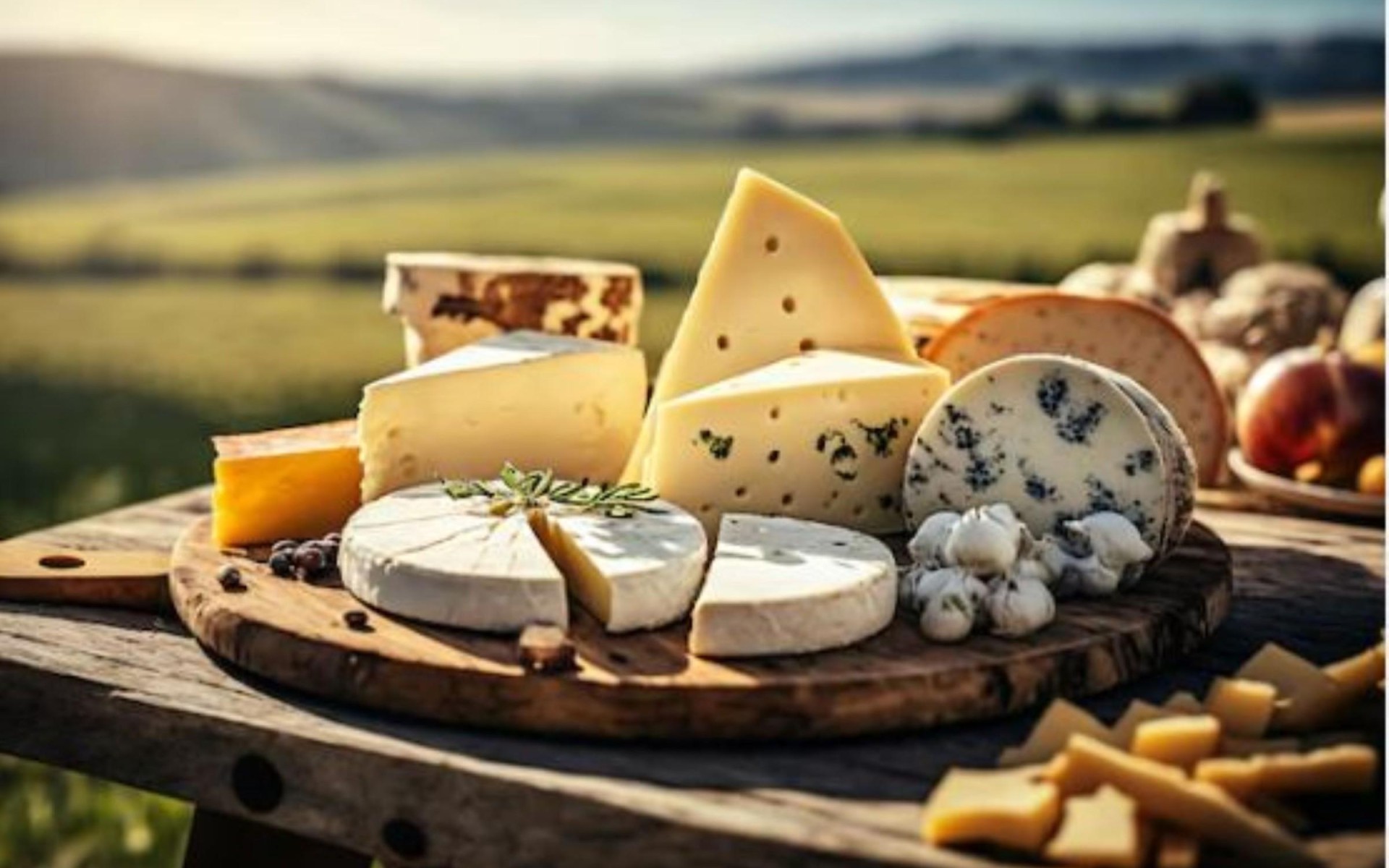Acquire Quality Cheese for Sale Online Melbourne's Best
Acquire Quality Cheese for Sale Online Melbourne's Best
Blog Article
A Thorough Check Out Cheese Manufacturing: Components, Approaches, and the Future of Artisan Cheeses
The elaborate process of cheese manufacturing is a fascinating convergence of art and scientific research, where top notch milk, rennet, and certain microbial cultures offer as foundational components. As the industry increasingly focuses on sustainability and transparency, the future of artisan cheeses guarantees to reflect both heritage and development.
Key Active Ingredients in Cheese Manufacturing
A selection of vital components play a pivotal role in cheese production, each adding to the last product's taste, structure, and personality. The main active ingredient in cheese is milk, which can come from various sources, consisting of cows, goats, and lamb - cheese factory melbourne. The kind of milk made use of considerably affects the cheese's preference and uniformity; as an example, cow's milk usually produces creamier cheeses, while goat's milk frequently creates zesty varieties
Another vital ingredient is rennet, an enzyme utilized to curdle the milk, dividing it right into curds and whey. The resource of rennet can be animal, vegetable, or microbial, each presenting distinct qualities to celebrity. Cultures, containing specific strains of microorganisms, are additionally important to the cheese-making process. They ferment lactose into lactic acid, aiding in taste growth and structure.
Salt not only boosts the taste yet also serves as a preservative, inhibiting the growth of undesirable microorganisms. Additionally, various flavoring agents, such as natural herbs, seasonings, and even smoked timber, can be included in produce distinct artisanal cheeses. With each other, these active ingredients create the structure of cheese manufacturing, setting the stage for varied and abundant cheese varieties.
Typical Cheese-Making Methods
Using traditional cheese-making strategies, craftsmens worldwide maintain classic methods that have been given with generations. These techniques frequently stress using high-quality, locally sourced milk, which is central to the unique flavors and textures of artisanal cheeses. The process generally begins with the mindful heating of milk, followed by the addition of societies and rennet to help with coagulation.
When the curds develop, they are cut, enabling whey to drain pipes, a crucial action that affects moisture web content and appearance. Salting is an essential aspect of this procedure, improving flavor while likewise acting as a chemical.
Aging, or affinage, is one more vital part, during which cheeses create their characteristic scents and preferences. Craftsmens may employ details aging atmospheres, making use of humidity and temperature controls to fine-tune the cheese's account. The commitment to these typical approaches not just supports local economies however also adds to the abundant diversity of cheese selections located globally, celebrating social heritage and artisanal workmanship.
Modern Technologies in Cheese Production
How have technical improvements transformed cheese production in recent years? The combination of modern technology has revolutionized both the effectiveness and top quality of cheese manufacturing.
Additionally, improvements in microbiology have actually enabled cheesemakers to pick particular bacterial societies and enzymes, enhancing taste accounts and enhancing life span. Using sensor innovation for keeping track of fermentation problems has actually likewise become common, permitting real-time adjustments to maintain ideal atmospheres for cheese aging.

These improvements not only improve the top quality and sustainability of cheese production however also equip craftsmen manufacturers to keep standard flavors while accepting contemporary effectiveness. As innovation proceeds to progress, the future of cheese manufacturing looks appealing, blending custom with innovation.
The Duty of Terroir in Cheese
In the realm of cheese production, terroir plays a critical function in defining the distinct qualities of various cheeses. Terroir, a French term commonly associated with white wine, includes the ecological aspects that affect agricultural items, including dirt composition, climate, and local plants and animals. In cheese-making, the unique characteristics of the region where the milk is sourced can convey certain tastes and appearances to the end product.
For example, the grazing problems of milk animals considerably affect the milk's make-up, influenced by the types of turfs and natural herbs available in a specific location. This differs not only between countries but additionally in between regions within the exact same nation. Additionally, the microbial neighborhoods existing in the setting contribute to the fermentation procedures, causing diverse accounts in taste and fragrance.
Cheeses such as Roquefort, Parmigiano-Reggiano, and Cheddar exemplify how terroir can form their identities, making them distinct and frequently protected by geographical signs. As producers increasingly recognize the significance of terroir, there is a growing focus on sourcing local active ingredients and maintaining standard practices, making sure that each cheese truly shows its beginning.

Future Trends in Artisan Cheeses
A remarkable change is taking place in the craftsmen cheese field, driven by advancing customer preferences and technical cheese store melbourne developments. Progressively, customers are being attracted towards unique, high-grade products that stress both sustainability and regional sourcing - cheese store melbourne. This pattern is motivating artisan cheesemakers to introduce, concentrating on small-batch manufacturing and the usage of standard techniques while incorporating modern technology to improve quality and safety and security
Additionally, there is an expanding rate of interest in plant-based and different dairy products, pushing typical cheesemakers to check out new avenues, such as cashew or almond-based cheeses. This shift not only accommodates dietary restrictions however likewise straightens with environmental concerns relating to animal farming.
In addition, openness in sourcing and manufacturing procedures is becoming paramount. Consumers are a lot more enlightened and demand traceability, motivating producers to embrace clearer labeling practices and take part in narration that highlights their techniques and worths.
Conclusion
Finally, the detailed procedure of cheese manufacturing blends typical techniques with contemporary technologies, causing a varied selection of flavors and textures. The emphasis on top notch active ingredients and the influence of terroir underscore the artistry involved in cheese manufacturing. As the sector evolves, an emphasis on sustainability and transparency will likely form the future of artisan cheeses, providing to a significantly discerning customer base that values authenticity and craftsmanship in milk items.
Report this page